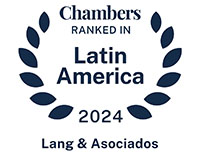Sexual harassment is a serious problem affecting people worldwide, including Costa Rica. It violates fundamental human rights and undermines dignity, well-being, and equality. This article provides an overview of the legal framework for addressing sexual harassment in the workplace in Costa Rica, including relevant laws, some court decisions, and the challenges ahead.
Legal Framework
Costa Rica’s primary legislation against sexual harassment is the Law Against Sexual Harassment in Employment and Teaching (Law No. 7476). This law defines sexual harassment as any unwanted sexual behavior, request for sexual favors, or any other verbal, nonverbal, or physical conduct of a sexual nature that harms a person’s dignity.
The law requires employers and educational institutions to prevent and address sexual harassment. Employers must establish express policies and procedures to create a safe and inclusive work environment as well as mechanisms to receive and investigate complaints. These measures promote prevention, awareness, and effective responses to sexual harassment.
The Costa Rican Supreme Court of Justice, especially its Second Chamber, has significantly influenced the legal landscape regarding sexual harassment in the country. Through its decisions, the Court has established crucial principles and criteria for addressing sexual harassment cases.
One important aspect emphasized by the Court is the victim’s subjective perception. It recognizes that sexual harassment’s impact is deeply personal and subjective, making it essential to consider the victim’s experience when evaluating the severity of the conduct.
The Court has also emphasized the employers’ duty of care and responsibility to provide a safe work environment free from sexual harassment. It has consistently ruled that employers must take appropriate measures to prevent, investigate, and address reports of sexual harassment promptly. Failure to do so may result in legal consequences for the responsible parties.
Challenges and Future Perspectives
Despite the legal framework and court decisions, several challenges remain, including the underreporting of sexual harassment incidents due to fear, stigma, and power imbalances. Victims are often hesitant to come forward, concerned about retaliation and its impact on their professional or educational future.
To overcome these challenges, it is crucial to promote a culture of respect, equality, and accountability. Employers and educational institutions must create an environment where victims feel safe and empowered to report incidents of sexual harassment. This involves implementing comprehensive policies, providing prevention and response training, and establishing confidential reporting mechanisms.
Additionally, it is essential to continue raising awareness and educating people about the consequences of sexual harassment. This can be achieved through public campaigns, educational programs, and the involvement of civil society organizations, employers, and educational institutions.
Conclusion
Addressing sexual harassment requires a multifaceted approach that combines legal measures, awareness campaigns, and the active involvement of all stakeholders. Costa Rica’s legal framework provides the foundation for combating sexual harassment, but it is crucial to ensure its effective implementation and enforcement.
As a society, we must strive to create a culture of respect, equality, and zero tolerance for sexual harassment. By working together, we can create safe and inclusive environments where people can thrive without fear of harassment or discrimination. Sexual harassment is a serious problem affecting people worldwide, including Costa Rica. It violates fundamental human rights and undermines dignity, well-being, and equality.
Tags: #costaricaharassment, #costaricalaborlaw, #costaricalaborlawfirm, #costaricalaborlawrlaw, #costaricalawfirm, #sexualharassmentincostarica


.jpg)




